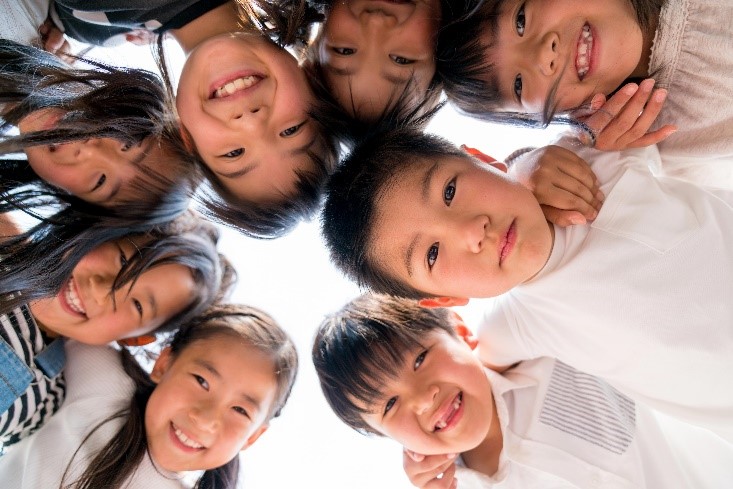Little Eyes are Watching You
Little Eyes are Watching You
Many educators believe that children learn through play. This is, in fact, true. Children also learn by watching what the adults around them do and say. Children trust and love their caregivers and want to be just like them. You can positively teach critical social-emotional skills, or you can show them negative behaviours.
Even when they appear to be engaged with other things, children are often taking in every word and action you use. People follow all sorts of influencers on Instagram and YouTube. Guess what? You are an influencer in Early Learning. How will you choose to influence the children in your care?
Let’s begin at the start of the day. Do you arrive to work happy and enthusiastic? Or are you tired, working on your XL cup of coffee, and complaining about the weather? A young child sees that a grown-up they love is tired, listless and talking about not getting enough sleep {maybe I won’t nap today.} They are walking around with their cup of coffee {I don’t need to sit down to drink or eat}, and they are not happy about the weather {I’ll make a fuss to stay inside when it’s outside time.}
Instead, why not show up to work and let everyone know how happy you are to be there? Keep the consumption of grown-up beverages to your breaks and make sure that you are always sitting down when eating and drinking. Is the weather nasty? Talk about fresh air and the fantastic things you can learn when you play in the rain, snow or cold. Children in Canada should understand that we have varied weather, and there is always something amazing about nature.
Did you stomp on a spider in your room, or did you show it kindness and take it outside?
Did you yell across the room at a child, or did you walk over to them and speak to them in a respectful tone?
Do you use a ladder or a chair when you need to reach things up high? What do you say to the children who stand on chairs?
What Can You Teach?
There are many lessons that school does not teach. One of the most basic and important lesson is how to make a mistake. As an influencer, you can be a role model on how to handle mistakes and to teach that it is alright to make mistakes.
Your lesson can be as simple as saying, “Oh dear! I’ve made a mistake. Now I need to fix it.” Or you can say, “You’re right, what I said was wrong. Thank you for pointing that out.”
School doesn’t teach you how to fail or to lose with grace. In Early Learning Environments, you can deliver a positive narrative to the children. Perhaps you are chatting at the lunch table and tell the children you watched a hockey game last night. Maybe your team didn’t win. The next words out of your mouth can be positive or negative. “I’m sad that my team lost, but I know that they will do better next season! I enjoy watching hockey with my family.”
If you remember the acronym for FAIL and teach it to the children, you will help build a generation of children who are resilient and have a higher degree of emotional intelligence.
First
Attempt
In
Learning
Teaching good behaviour
What do you want children to be? Do you value positive self-esteem, self-confidence, kindness, patience, empathy, and joy? Those qualities are important to me, so ask yourself which ones are important to you?
Now that you have your list reflect on whether or not you role model those qualities in the classroom. We often think we are modelling those behaviours, but sadly the reverse is often the truth. Do you hold a crying child and tell them they are okay? You might think this is showing kindness, but it is not. If a child is crying, they are NOT OKAY. Something is very wrong in their world. Even though you know it’s not a big problem; the children do not have the life skills and experience to understand that it’s not a big deal. As an influencer, you need to comfort the child by telling them that they are safe, and to acknowledge their feelings, “I’m sorry you’re so sad.”
You cannot teach patience if you are always rushing around and telling children to hurry up. Self-confidence is learned when you encourage children to try and to set them up to be successful. When you are joyful, it becomes contagious, and the children around you also become joyful.
So ask yourself, what do the children see me do?
Until next time
